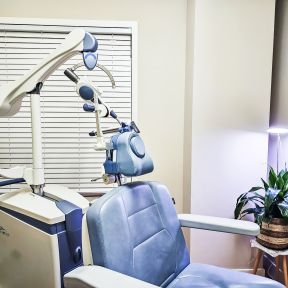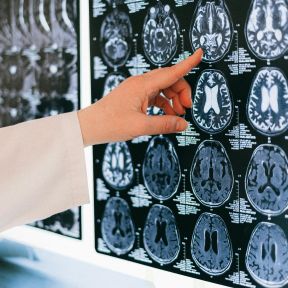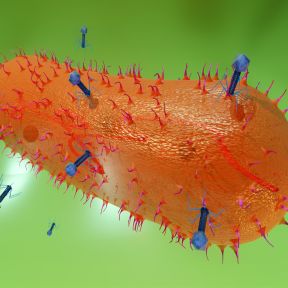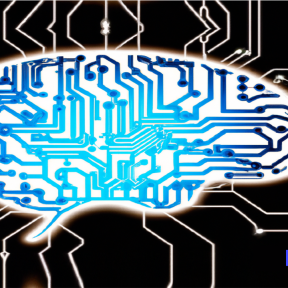
Precision Psychiatry
Like its counterpart in general medicine, precision psychiatry is an emerging field that recognizes the biological and environmental uniqueness of each individual and applies treatment methods and prevention strategies tailored to each person. Precision psychiatry not only normalizes individual differences but customizes treatment to distinctive symptom patterns and as many genetic, neurobiological, and psychosocial variables as science is currently capable of discerning and measuring. Precision psychiatry, like precision medicine in general, is enabled by technological advances that allow the collection and analysis of large amounts of fine-grained biological and behavioral data and the detection of patterns within them.

Precision psychiatry must factor in a huge number of variables and their interaction to understand the nature of a person’s disorder and to target treatment. Well-established variables include symptom expression, brain circuit function, physiology, cognitive function, genetic makeup, and past and current life experience. Diet, environment, activity levels, and sleep patterns are emerging as important factors. As precision psychiatry reveals how the many elements interact to cause illness and distress, it also promises to indicate many possible points of therapeutic intervention.
However intangible psychiatric symptoms may sometimes seem, they are all the product of some neurobiological process. Biomarkers (biological markers) are objective, usually laboratory-based measurements of specific body molecules and processes that are used as indicators of health and disease. As objective, physically based measures, they are distinct from symptoms, which are indicators perceived by patients themselves. Researchers search for biomarkers or constellations of biomarkers that can be considered the signature of specific conditions. Measurement of biomarkers associated with specific medical conditions is often used not just to determine the presence of illness, or susceptibility to it, but to suggest effective treatment and to gauge treatment response.
Psychiatry has long sought to identify and validate biomarkers of brain and mental health, and biomarkers are thought to be necessary for the advancement of precision psychiatry. For millions of people who currently undergo pharmacotherapy for depression, for example, treatment usually involves a trial-and-error process with different drugs, several rounds of therapeutic failure, unpleasant or intolerable side effects, and many months before there is any relief, if at all. Researchers are now actively testing whether biomarkers of nerve-connectivity patterns in various brain circuits could help identify which people are most likely to respond to various kinds of antidepressants. Genomic testing can also yield information about who is more likely to respond to classes of drugs or specific drugs.
Psychiatric researchers are currently exploring possible biomarkers not just for depression but for mental health conditions as diverse as anxiety, PTSD, eating disorders, bipolar disorder, substance use disorders, autism, schizophrenia, and suicidality. Candidates include the presence or absence of specific genes and variants, levels of specific inflammatory molecules, the strength of various signals measured on EEGs, connectivity patterns in functional brain circuits seen in brain imaging, activity patterns of specific brain structures such as the amygdala detectable through brain imaging, and more.
“Omics” is a term indicating the study and measurement of a specific, functionally important category of biomolecule, or the totality of a molecular process, within an organism. For example, genomics is the study of the complete sequence of DNA (the genome) in a cell or an organism. It encompasses the entire inherited genetic makeup of a person, including genetic mutations. Applied to precision psychiatry, genomics aims to understand all the gene activity that plays a role in mental processes and identify which genetic variants or constellations lead to specific mental and neurodevelopmental disorders. Genomics includes the screening of drugs for their capacity to restore gene-linked neuronal and behavioral functions.
In addition to genomics, and related to it—the elaboration of it—but far more dynamic, is transcriptomics, which identifies and measures RNA molecules transcribed from an individual genome at a given time. Large suites of genes have been linked to risk for many psychiatric disorders. Transcriptomics help pinpoint the mechanisms underlying genetic risk for some of these disorders.
Proteomics is the study of the entire range of proteins expressed by a cell, tissue, or organism. Metabolomics is the study of metabolites, the many products of the many metabolic reactions that take place within every cell. Researchers, for example, are studying various metabolites that circulate in the bloodstream as markers of cognitive deficits specific to schizophrenia to facilitate early diagnosis and treatment.
Currently, brain imaging is more a research tool for understanding how the brain works than it is a diagnostic tool. However, there is increasing evidence that neuroimaging can identify specific dysfunctional brain circuits involved in a person’s depression—circuit signature, or biotype. The technique can also be used to precisely track whether there is restoration of normal function in response to treatment. Psychiatry is gaining a detailed understanding of neural circuit dysfunction in conditions such as anxiety, PTSD, schizophrenia, and attention deficit hyperactivity disorder. Brain imaging may in the future offer a map to treatment for each individual and help identify the circuit disruptors to which each individual is most sensitive. That information can be used to develop strategies for prevention of disorder.

First and foremost, precision psychiatry allows medical care to accommodate the enormous complexity of human beings and the great variation among them. Using high-powered technology to analyze huge amounts of information on a vast array of biological and behavioral variables collected from many different people, precision psychiatry can detect patterns of association and influence on mental health that are not discoverable otherwise. It is poised not only to pinpoint what has gone wrong in distressed individuals and identify the most likely course of correction for each person, but to also offer nuanced information into what makes and keeps every one of us happy, healthy, and productive.
The objective of precision medicine is encapsulated in what has been called the four Ps—to make the diagnosis of illness, its treatment, and, ultimately prevention, more personalized, proactive, predictive, and precise. In pinpointing the exact processes that are malfunctioning in an individual, precision psychiatry promises treatment directly targeted to correcting them. Individual patients are matched to treatments most likely to work based on an array of measurable characteristics, speeding relief. Further, precision psychiatry can identify which treatments work best for people of differing backgrounds.
Precision psychiatry is poised to unlock many of the everyday mysteries of the mind. What, for example, are moods, and from what constellation of factors are they constructed? Are there objective ways to measure what seem to be the ultimate subjective states? And what neurobiological mechanisms convey signals that shape them? Could artificial intelligence, that is fed running data from, say, a sleep tracker and an activity monitor along with intermittent subjective mood sampling from a diverse array of people, discern meaningful patterns of mood shifts that can be translated into clinically useful recommendations for mood management?
Precision psychiatry aims to get a fine-grained, highly detailed picture of the molecules and processes that go awry in mental disorders. That information also reveals the risk factors for such disorders. Such knowledge paves the way for the development of targeted prevention strategies to keep things from going amiss.
Because the brain is vastly more complex and more dynamic than other organs, and many different processes and experiences dynamically interact to create the unique pattern and flavor of symptoms an individual may express, its operations are only slowly yielding to understanding. That enormous heterogeneity makes precision psychiatry more of an aspiration than a reality. Nevertheless, precision psychiatry aims to identify and understand the many neurobiological mechanisms that underlie the symptoms of psychiatric disorders to apply treatments and prevention strategies that target them.














